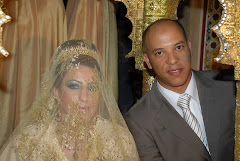the first item i found was a video of Howard Gardner http://www.edutopia.org/howard-gardner-interview#graph7
Howard Gardner’s interest in the multiple intelligences, the student direct learning and the different types of learners is the center of my teaching philosophy. I enjoyed listening to Gardner talking about the need for a new approach to assessment; his words were music to my ear. His idea about engaging the students in what they are learning and creating a meaning to what students are learning, if the students have the chance to manipulate the material being taught and are able to use it, it will stay with them forever. because it was taught in a context. As a French teacher I see the importance of that. I am moving away from one word answer into “chunks” or complete sentences since students will be able to use it. With my fifth graders I give them research to do on their own to help them own what they have learned and assist them in exploring instead of presenting the facts to them. And so many times I have learned great things from their research topics.
I liked listening to him talk about what I call an effective assessment. We shouldn’t assess to come up with a final verdict, but we should assess so that we can better our teaching and maximize the students’ learning. We should share the results with the students and get their feedback about what worked and what didn’t. By analyzing data we can look for patterns and notice flaws in our way of teaching and move to the self-assessment.
the second item i found was an article http://www.edutopia.org/comprehensive-assessment-introduction
With the states so worried about funding, and meeting the endless goals. Teachers and students are caught in the cross fire, the quality of teaching is going down while the quantity is going up. Teachers are teaching for the test and so many skills are left out. The No Child Left Behind had left us with No Teacher Left Alive. Assessing should tell us where we are, where are we headed and how can we change the outcomes and correct errors. I liked the fact that the article highlighted the importance of the performance –based assessment. As a language teacher of k-5th students with limited linguistic abilities (French). I find that the performance based assessment if a great way of assessing and checking for understanding. It gives me reassurance that my students learned and understood what I taught them and are able to show that, and it gives the students the chance to share what they have learned. Both summative and formative should be used to generate data and use the data to improve teaching and learning experience as well as scores.
The last item was a blog “Differentiated Instruction Allows Students to Succeed” http://www.edutopia.org/differentiated-instruction-student-success
I believe that all the students can learn, but not all the same way the day. Therefore I see the importance of differentiating instruction and ways of assessing the students to make sure that they are learning and succeeding. The blogger touched down on something very important which is the need for attention from the students as well as the neglect that most teachers do unintentionally to the quiet and shy students, those who obeys, do their work and never cause nay problems. I have decided last year to make sure that I would talk to one of them each day and not only by saying hi but trying to make a personal connection. “The ideal is to provide equivalent learning activities that cater to the students' strengths but bring all of the students to the same learning objective.” That’s the ideal fro me I would like to designs lessons and assessments well thought, challenging but yet age and level appropriate. Allowing extra time to finish the tasks to those needs maximizes their grades earning.
Subscribe to:
Post Comments (Atom)


No comments:
Post a Comment